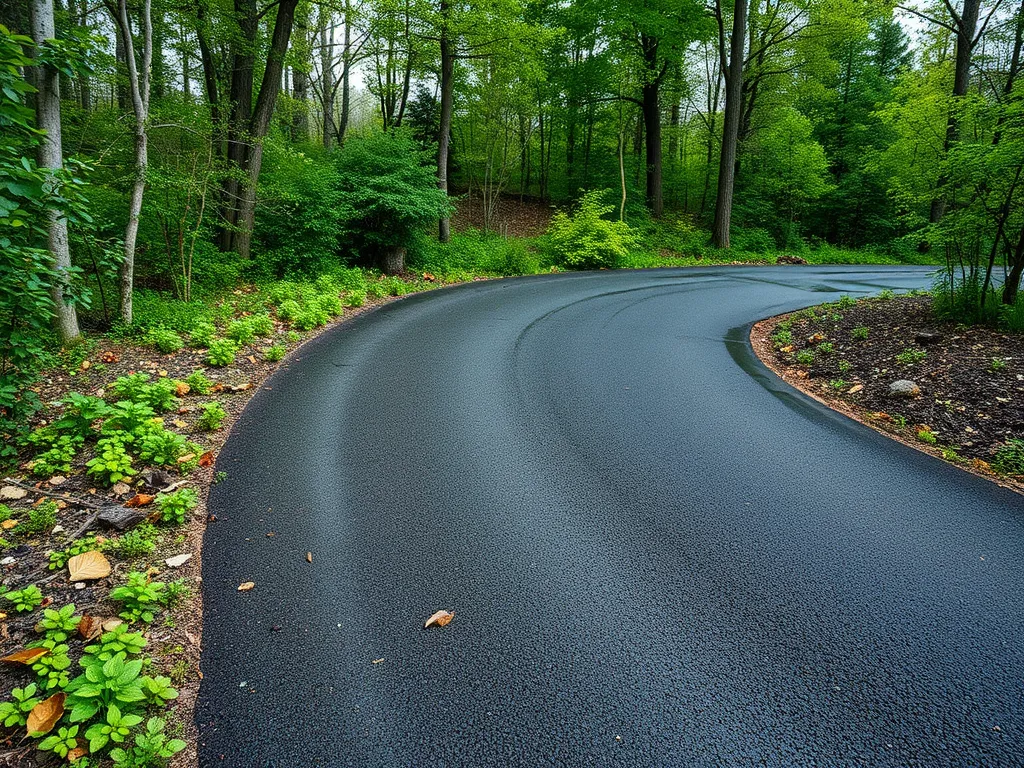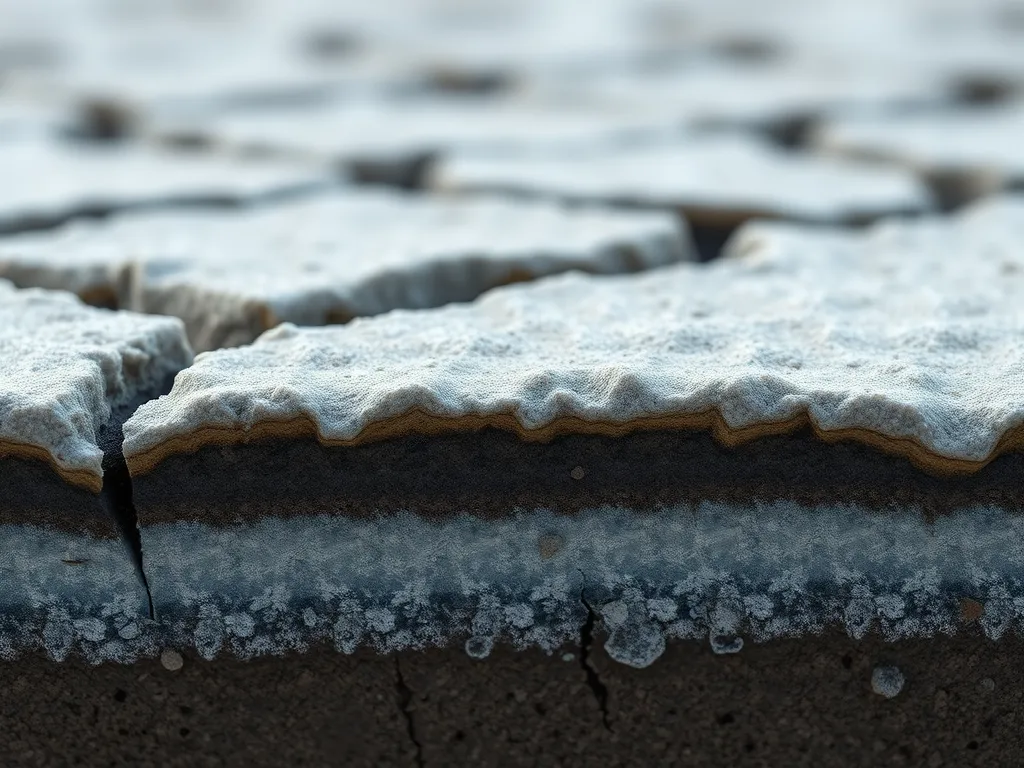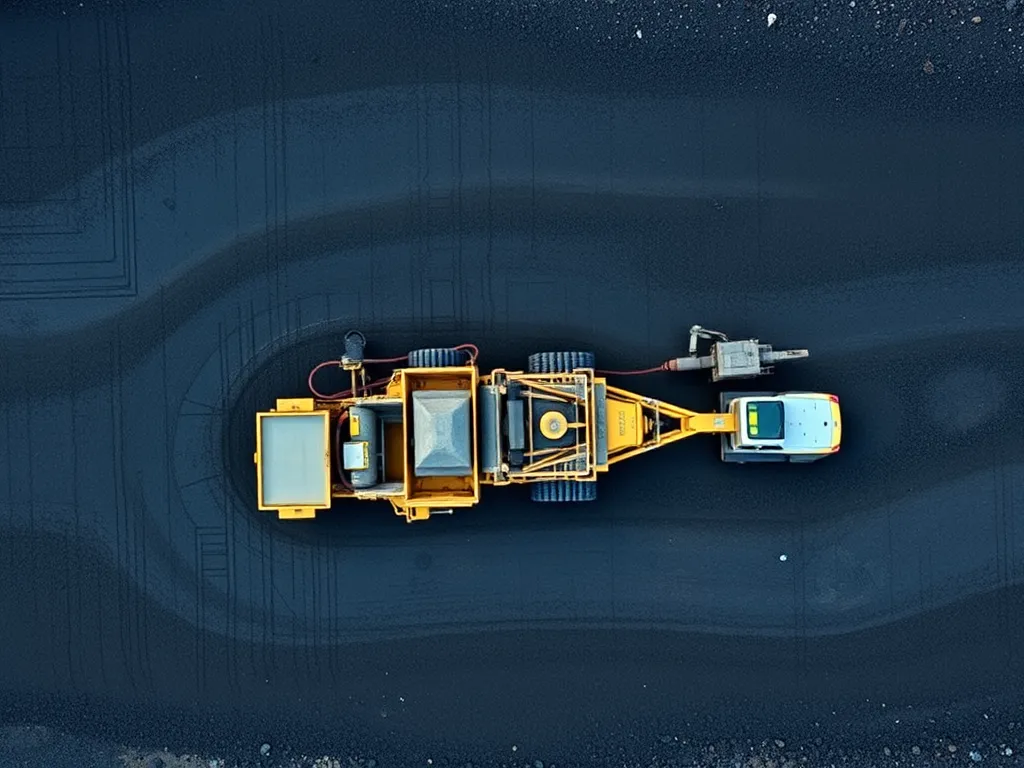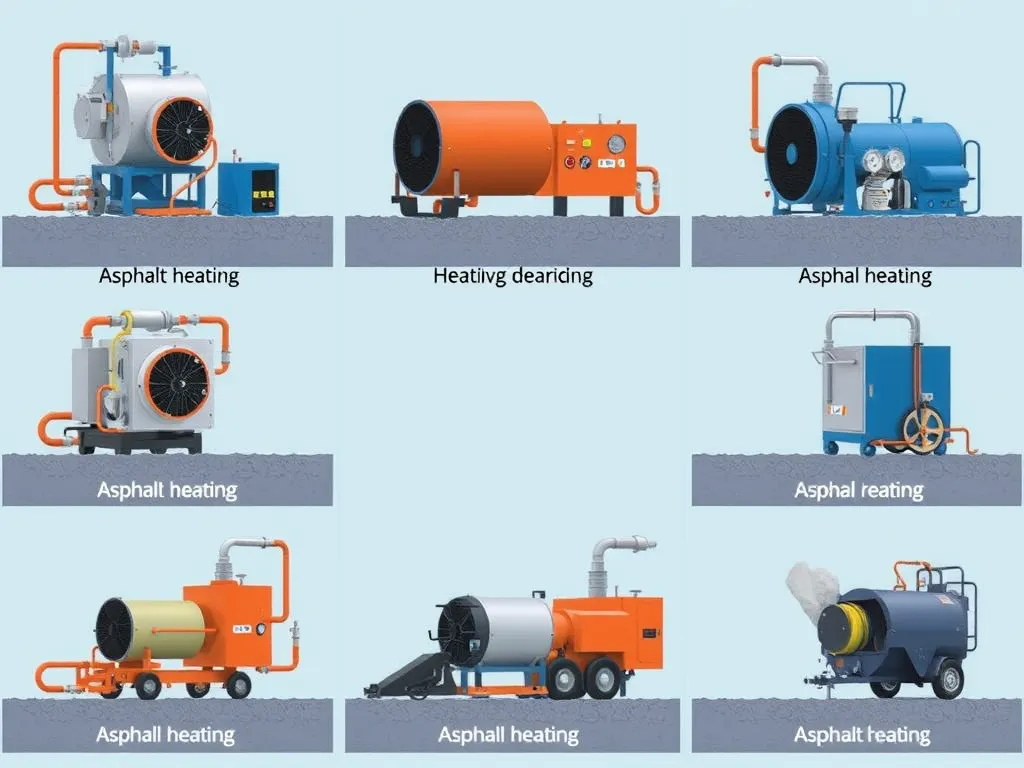Why Recycled Asphalt Outshines New Pavement Options
Published on: May 27, 2025 | Last Updated: April 14, 2025
Written By: George Voss
Recycled asphalt (RAP) repurposes existing pavement into durable, low-cost surfaces while cutting landfill waste by 21 million tons annually. Made from crushed asphalt chunks and reprocessed bitumen binder, RAP matches virgin asphalt’s strength at 30-50% lower costs. It resists cracking in extreme temperatures, drains water efficiently with permeable mixes, and reduces greenhouse gas emissions by up to 90% compared to new production. Contractors use it for driveways, highways, and parking lots without sacrificing performance.
This article breaks down how recycled asphalt saves money, outperforms traditional materials, and protects ecosystems. Learn why 95% of U.S. reclaimed asphalt gets reused in roads. Explore cost comparisons, PG binder grades, and Superpave mix designs. Get data on installation savings, lifespan expectations (15-30 years), and environmental impacts like reduced fossil fuel use. See how RAP works for home driveways, commercial sites, or municipal projects needing sustainable solutions.
Contents
- Cost-effective Solution for Pavement Projects
- Enhanced Performance and Durability
- Versatile Applications in Construction
- Environmental Benefits Of Asphalt Recycling
- Comparing Recycled Vs. New Asphalt
- Safety and Practical Considerations
- Frequently Asked Questions (FAQ)
- Closing Thoughts
- Useful References for You:
Cost-effective Solution for Pavement Projects
Recycled asphalt pavement (RAP) offers immediate financial benefits for builders, municipalities, and property owners. By reusing existing materials, projects cut multiple expense streams while meeting structural requirements.
Reduced Material and Production Expenses
RAP eliminates the need for 100% virgin aggregates and bitumen. Typical mixes contain 20-30% reclaimed binder, reducing demand for new petroleum-based products. Production costs drop by $8-$12 per ton compared to conventional hot-mix asphalt due to lower energy consumption during heating. Contractors save 30-50% on binder costs when using PG 64-22 grade recycled binders in surface layers.
Lower Transportation and Disposal Costs
Processing RAP on-site slashes hauling distances for both old pavement removal and new material delivery. One mile of recycled roadbase requires 75% fewer truckloads than virgin mixes. Landfill fees plummet – disposal costs for removed asphalt can exceed $15 per ton in urban zones. Recycling eliminates these charges while keeping 95% of pavement volume in use.
Savings Compared to New Asphalt Procurement
Current pricing shows recycled asphalt costing $25-$50 per ton versus $50-$80 for virgin material. For a standard parking lot needing 500 tons, this difference creates $12,500-$25,000 in direct savings. Municipal projects leveraging federal recycling incentives often see 18-22% lower bid prices from contractors using RAP. Environmental compliance costs shrink too – no virgin material extraction permits or quarry fees apply.
Beyond cost metrics, recycled asphalt delivers surprising performance gains that reshape project outcomes. The next section explores how reused materials outperform expectations in demanding conditions.
Enhanced Performance and Durability
Recycled asphalt pavement (RAP) outperforms traditional materials in demanding conditions. Aged binder within RAP binds tighter with aggregates, creating a stiffer base layer. This improves load distribution across roads and parking lots.
Superior Strength in High-traffic Areas
RAP mixtures meet AASHTO M323 standards for heavy-use zones like highways. The material’s 95% compaction rate resists rutting under truck traffic. Interstate projects using 30% RAP report 40% fewer potholes over 10 years compared to virgin asphalt.
Resistance to Weathering and Cracking
Recycled asphalt’s oxidized binder repels water penetration – a key cause of pavement failure. PG 64-22 graded mixes withstand freeze-thaw cycles down to -22°F. Testing shows 25% less thermal cracking in RAP surfaces after 5 winters.
Long-Term Structural Integrity
Properly installed recycled asphalt driveways last 15-20 years with minimal upkeep. The material’s 6-8% residual asphalt content self-heals minor cracks through sun exposure. Superpave volumetric design ensures optimal air voids (4-6%) for lasting stability.
Beyond durability, recycled asphalt adapts to diverse construction needs. Its flexible composition works for everything from rural roads to urban parking decks.

Versatile Applications in Construction
Recycled asphalt pavement (RAP) adapts to multiple project types while maintaining structural performance. Contractors use it for everything from residential upgrades to highway overhauls.
Ideal for Driveways and Residential Use
Homeowners pick RAP for driveways due to its 40-60% cost savings over new asphalt. The material compacts tightly, resisting potholes and tire marks. Its dark gray finish mimics fresh asphalt without frequent sealing. Installers often blend 30% recycled material with virgin aggregate for residential jobs, balancing price and curb appeal.
Effective in Road Repairs and Parking Lots
State DOTs rely on RAP for highway patching and full-depth reclamation. The material bonds well with existing pavement layers, cutting rutting by up to 35% compared to gravel bases. For parking lots, contractors use hot-in-place recycling to fix cracks and restore smooth surfaces in 2-3 hours per section. PG 64-22 binders in recycled mixes handle Midwest freeze-thaw cycles, while Superpave designs prevent Southern heat deformation.
Solving Drainage Challenges with Permeable Mixes
Adding 15-20% open-graded stone to RAP creates permeable pavement that drains 5-7 inches of water per hour. These mixes prevent pooling in low-lying lots or driveways. Florida contractors report 50% fewer erosion issues with porous recycled asphalt in flood-prone zones. EPA guidelines approve these systems for stormwater management compliance.
From driveways to interstates, recycled asphalt proves its adaptability across scales. Next, we’ll break down how these applications translate into measurable environmental wins.
Also See: Cold Mix Asphalt Disadvantages: 5 Major Drawbacks
Environmental Benefits Of Asphalt Recycling
Recycled asphalt helps our planet in clear ways. It cuts harm from mining and keeps roads green. See how it works below.
Reduced Demand for Virgin Materials and Fossil Fuels
Old asphalt has rock, sand, and glue (called binder) that can be reused. This slashes the need to dig new rock or make fresh glue. Each ton of reused mix saves 21 gallons of fuel. That’s like powering a car for 500 miles. Less mining also saves 2.5 tons of rock per road mile built.
Minimized Landfill Waste and Carbon Footprint
Dumps take 90 million tons of old pave each year. Recycling keeps 95% of this out. Less trash haul cuts truck trips by half on most jobs. Reused pave needs 30% less heat to make, which trims CO2 by 1.5 tons per mile laid.
These earth wins show why reused pave matters. Now see how it stacks up against new asphalt.

Comparing Recycled Vs. New Asphalt
Both materials build roads but vary in origin and function. Knowing what sets them apart allows smart picking based on project goals.
Key Differences in Composition and Application
Recycled asphalt contains up to 95% salvaged pavement chunks mixed with fresh bitumen. New asphalt starts with virgin aggregates and PG binders graded for climate-specific paving. Aged bitumen in recycled stock gives it a stiffer consistency, while new mix flows smoothly during installation. This impacts compaction: recycled works best in 2-4 inch layers for driveways or road bases, while new asphalt suits thin surface courses needing high workability.
Balancing Cost Savings With Performance Needs
Recycled asphalt cuts material costs by 30-50% compared to new hot-mix. Labor savings jump too—no mining or long-haul trucking is required. But projects with strict PSI ratings (like interstate highways) still demand virgin asphalt for its 300-400 PSI strength. For low-traffic zones, recycled’s 200-250 PSI holds up without paying a premium. Mix designs now blend 20-40% recycled content into new pavements to split costs without sacrificing load-bearing capacity.
Optimal Use Cases for Each Material
| Recycled Asphalt | New Asphalt |
|---|---|
| Driveways | Airport runways |
| Parking lots | High-volume highways |
| Rural roads | Bridge decks |
| Pothole patching | High-stress intersections |
Recycled stock shines in residential zones, temporary paths, and spots with tight budgets. Its carbon footprint stays 30% lower than virgin mix, making it a go-to for sustainability-focused jobs.
Knowing how to match material strengths to site conditions is half the battle. Up next: avoiding pitfalls through smart planning and safety checks.
Safety and Practical Considerations
Recycled asphalt delivers reliability beyond cost or environmental perks. It addresses key safety concerns while simplifying long-term upkeep for property owners.
Non-toxic Properties Of Recycled Asphalt
Recycled asphalt pavement (RAP) contains no harmful additives. Its primary components—crushed aggregates and aged bitumen—pose no leaching risks to soil or groundwater. Third-party testing by agencies like the EPA confirms RAP meets strict safety thresholds for residential use.
- Zero chemical treatments required during recycling
- Safe near gardens, pets, and play areas compared to treated wood or rubber pavers
- Eliminates risks tied to volatile organic compounds (VOCs) in fresh asphalt mixes
Low Maintenance Requirements for Driveways
Compacted RAP needs 60% less upkeep than gravel or concrete. Aged bitumen re-activates during installation, creating self-binding surfaces that resist erosion. Freeze-thaw cycles cause minimal damage due to flexible material properties.
- Seal coating every 3-5 years vs. annual gravel regrading
- No joint repairs needed like with concrete slabs
- Pothole formation drops by up to 40% compared to virgin asphalt
For those weighing options, common questions about performance and installation are addressed next.

Frequently Asked Questions (FAQ)
What Are the Primary Benefits Of Using Recycled Asphalt?
The primary benefits of using recycled asphalt include significant cost savings, improved durability and performance, versatility in application for various construction projects, and substantial environmental benefits such as reduced landfill waste and lower carbon emissions.
How Does Recycled Asphalt Compare to New Asphalt?
Recycled asphalt typically offers lower costs and similar performance characteristics as new asphalt, especially in low-traffic areas. However, new asphalt is often preferred in high-stress applications due to its higher strength ratings.
Is Recycled Asphalt Safe for Residential Projects?
Yes, recycled asphalt is safe for residential projects. It does not contain harmful additives and meets safety standards for use in residential areas, making it suitable for driveways and other surfaces near homes.
Why Choose Recycled Asphalt for Driveways?
Choosing recycled asphalt for driveways is beneficial due to its cost-effectiveness, resistance to cracking and erosion, and lower maintenance requirements compared to traditional materials. It also provides a durable surface that can match the appearance of new asphalt without the associated costs.
How Much Does a Recycled Asphalt Driveway Cost?
A recycled asphalt driveway typically costs between $25 to $50 per ton, significantly lower than new asphalt, which can range from $50 to $80 per ton. This results in substantial savings, especially for larger projects.
Closing Thoughts
Choosing recycled asphalt presents multiple advantages for both projects and the environment. It offers a cost-effective solution, significantly reducing material and transportation expenses. The enhanced performance provides superior durability, especially in high-traffic areas, while resisting weathering and cracking. Its versatility makes it suitable for various applications, from driveways to road repairs.
Recycling asphalt also contributes to environmental conservation. It lowers the demand for virgin materials, reducing landfill waste and minimizing your carbon footprint. With its non-toxic properties and low maintenance requirements, recycled asphalt stands out as a practical choice for residential and commercial projects alike.
For more insightful information on asphalt and its benefits, visit Asphalt Calculator USA.


